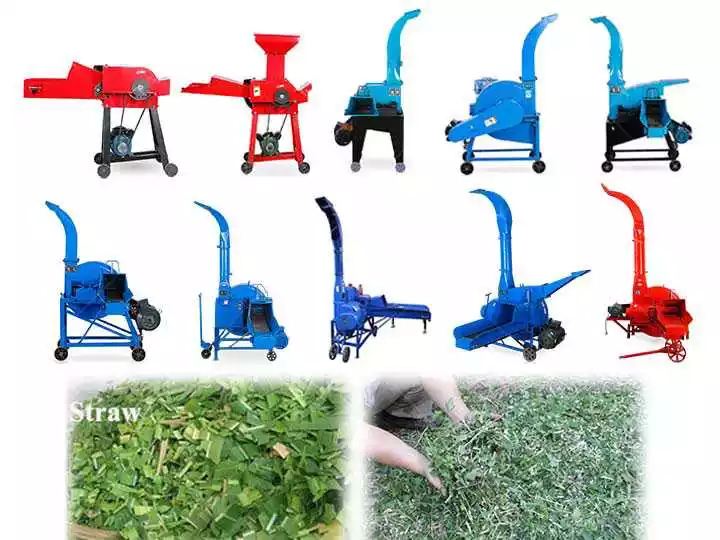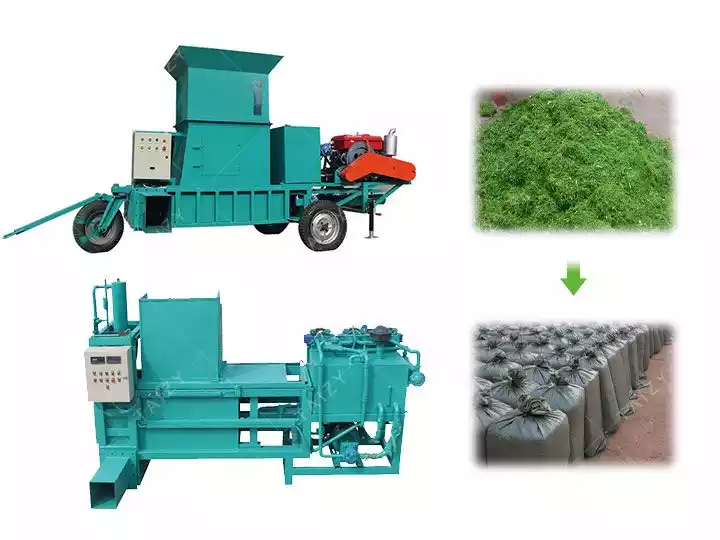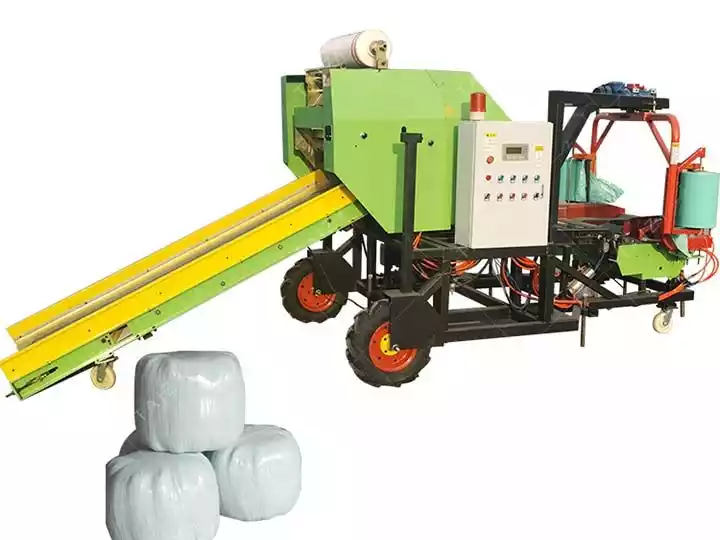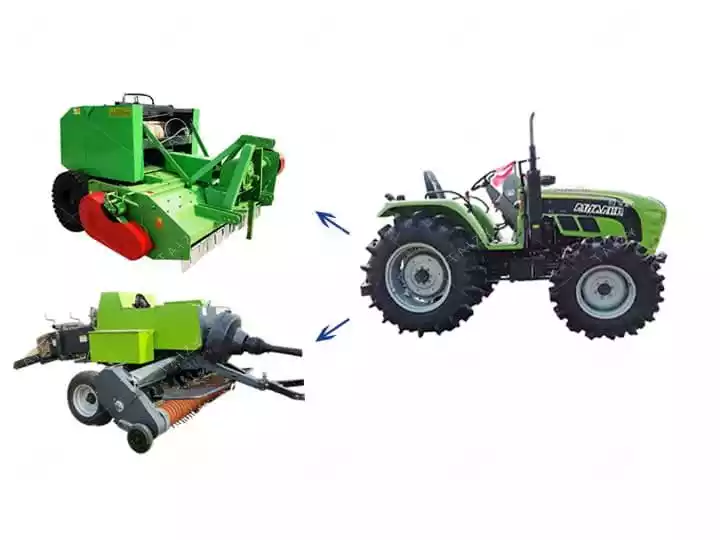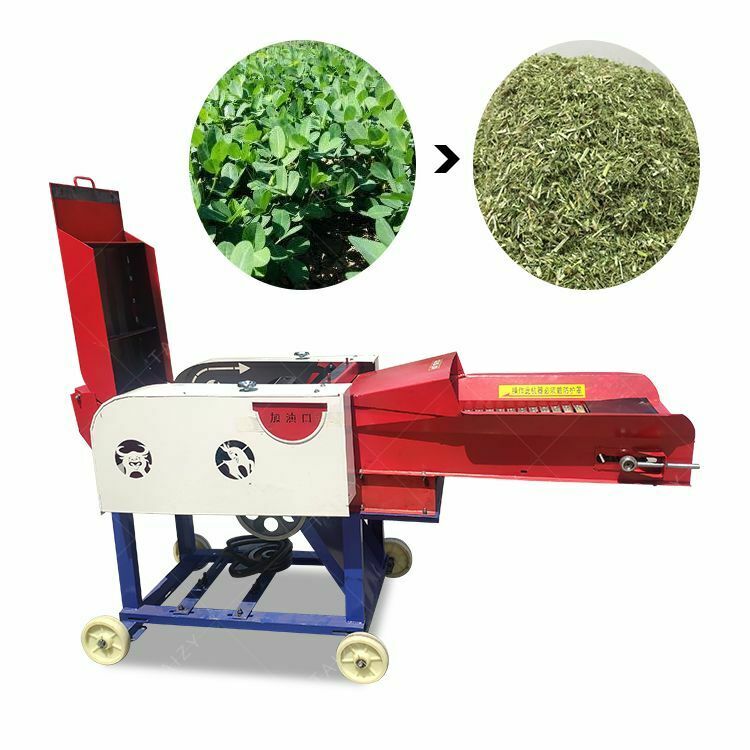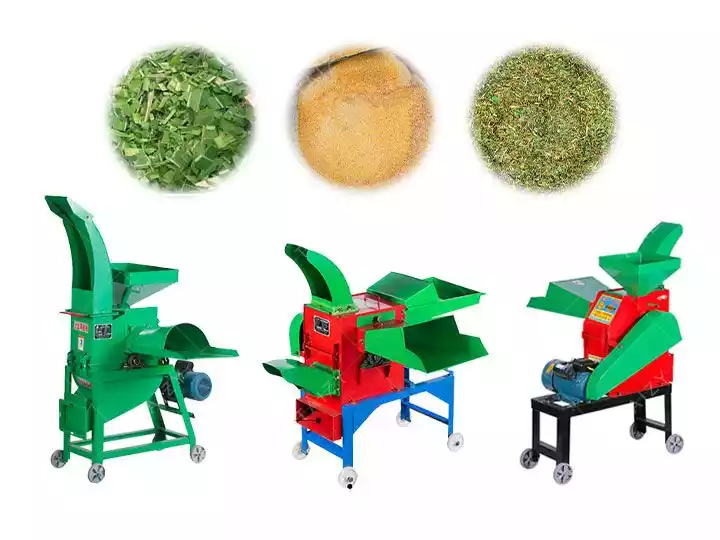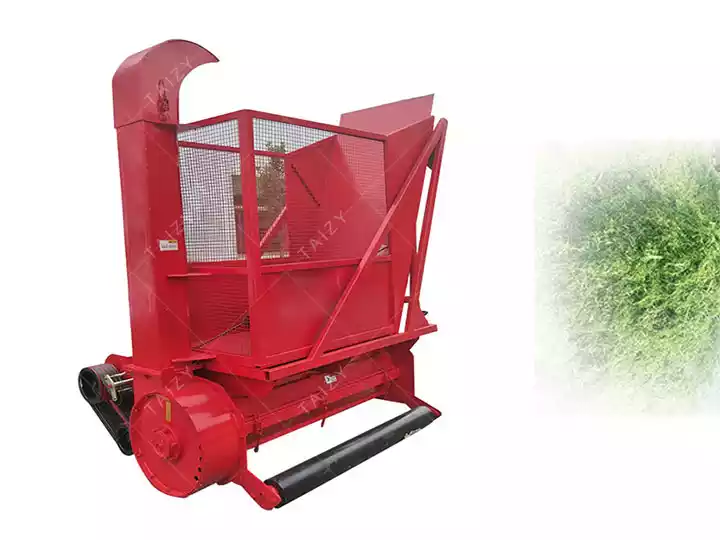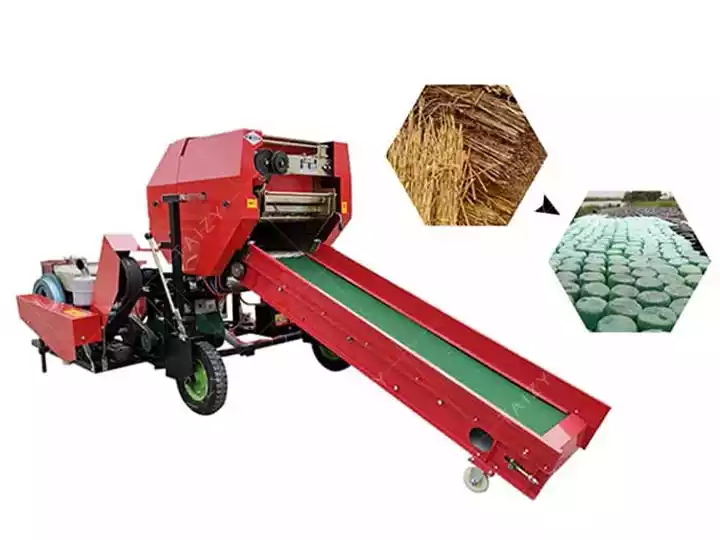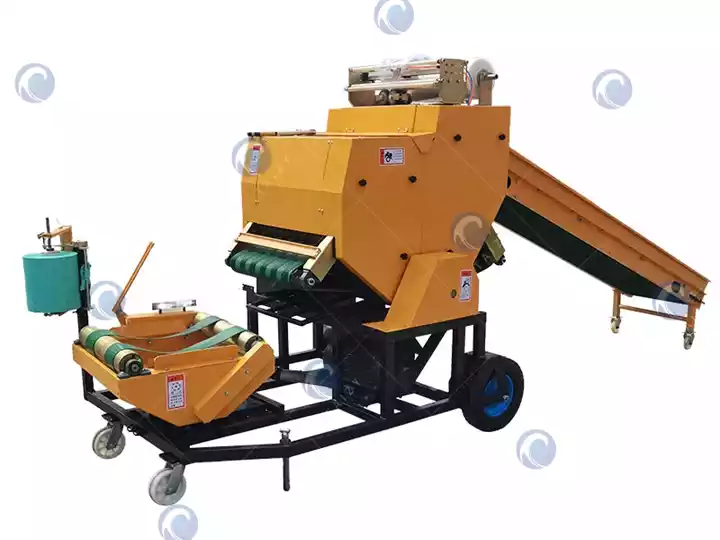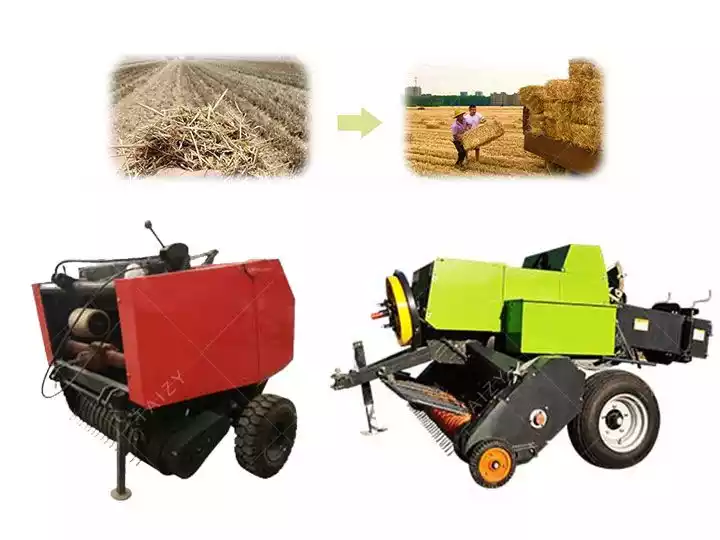Why should silage be baled and wrapped?
Silage baling and wrapping are widely used in animal husbandry and are an effective method of feed preservation. The silage bale not only improves feed quality, but also reduces losses and protects the environment, and is gradually being emphasized by farmers.
The necessity of baling and wrapping
The goal of silage baling and wrapping is to establish an optimal fermentation environment, allowing the feed to undergo lactic acid fermentation in anaerobic conditions. This method effectively eliminates harmful microorganisms in the feed, encourages the growth of beneficial lactic acid bacteria, enhances the feed’s digestibility, and ultimately boosts the efficiency of livestock feed conversion.
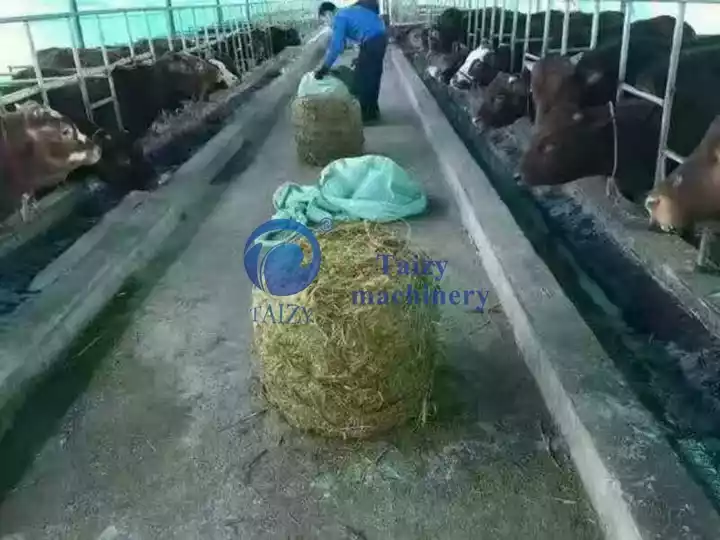
Functions of silage bale wrapper
The silage baler machine is primarily designed for gathering and baling various crops, including pasture grass, rice straw, wheat, and corn stalks. It processes fresh forage or straw by kneading it, then compacts and bales it at a high density, wrapping it in a special film to create a sealed package. This method greatly facilitates the storage of feed.
Advantages of using a bale wrapping machine
- The effective sealing of stretch film enhances the anaerobic fermentation environment, which in turn boosts the nutritional value of the feed. The processed feed has a pleasant aroma, high crude protein levels, and excellent digestibility and palatability, leading to a 100% feed intake rate among livestock.
- Coated feeds can be unwrapped and fed after winterization, significantly minimizing mold, runoff, and feeding losses. In contrast, traditional green storage can result in losses of 20% to 30%, while the baling and wrapping method effectively reduces these figures.
- This baling and wrapping technique prevents the loss of liquid juice, resulting in a compact and high-density packing volume that facilitates transportation and commercialization. It ensures a steady supply of green fodder to dairy farms, beef cattle farms, goat farms, and pig farmers.
- The sealed and compacted feed remains unaffected by seasonal changes, sunlight, or rainfall, allowing it to be stored outdoors for over 2 to 3 years. This greatly extends the feed’s shelf life and lowers storage costs.
- Fermented feed is more easily digested and absorbed by livestock, enhancing feed utilization and promoting faster growth rates.
- The baling and wrapping process also reduces reliance on natural grasslands, helps prevent grassland degradation, and contributes to ecological preservation.
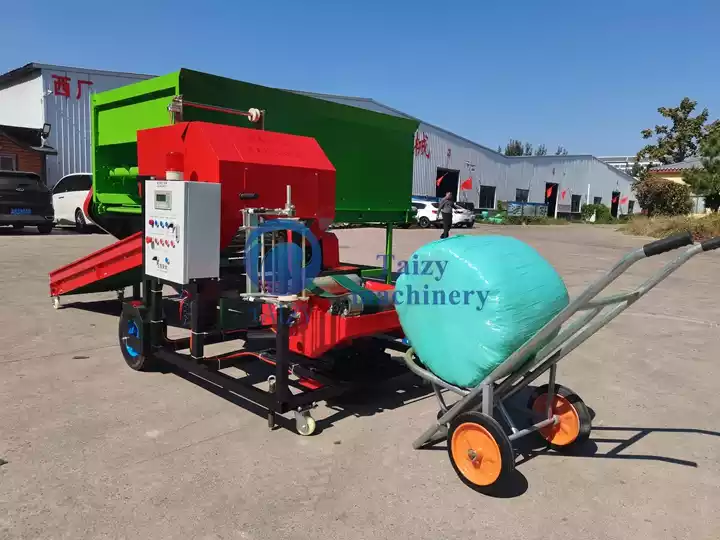
In conclusion, the baling and wrapping treatment of silage has important ecological and economic significance in promoting modern animal husbandry. We have three models of baling and wrapping machines for you to choose from, welcome to know more by clicking: Automatic Corn Silage Baler Machine For Feed Preservation, Silage Wrapping Machine Hay Baler For Sale, and New Belt-type Automatic Silage Baling And Wrapping Machine. Feel free to contact us at any time.

